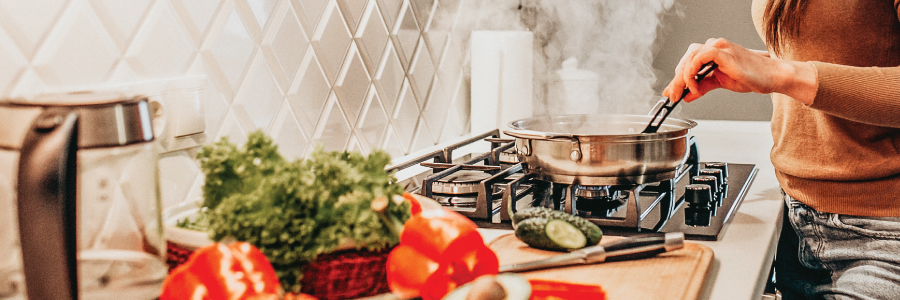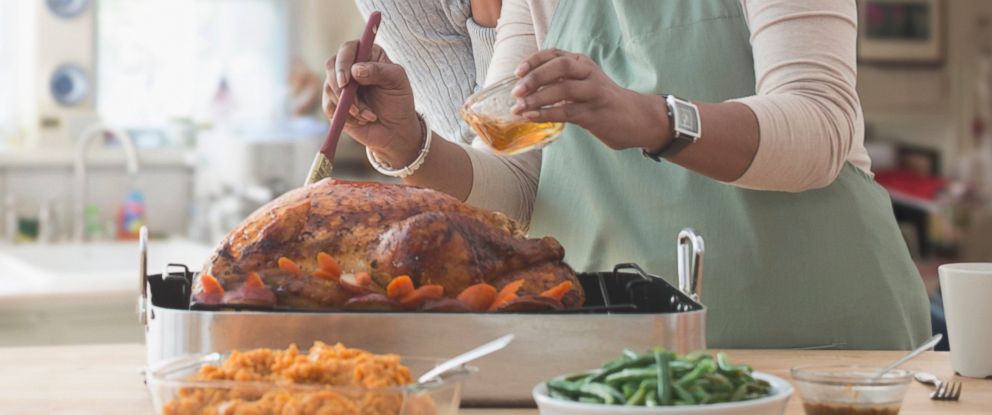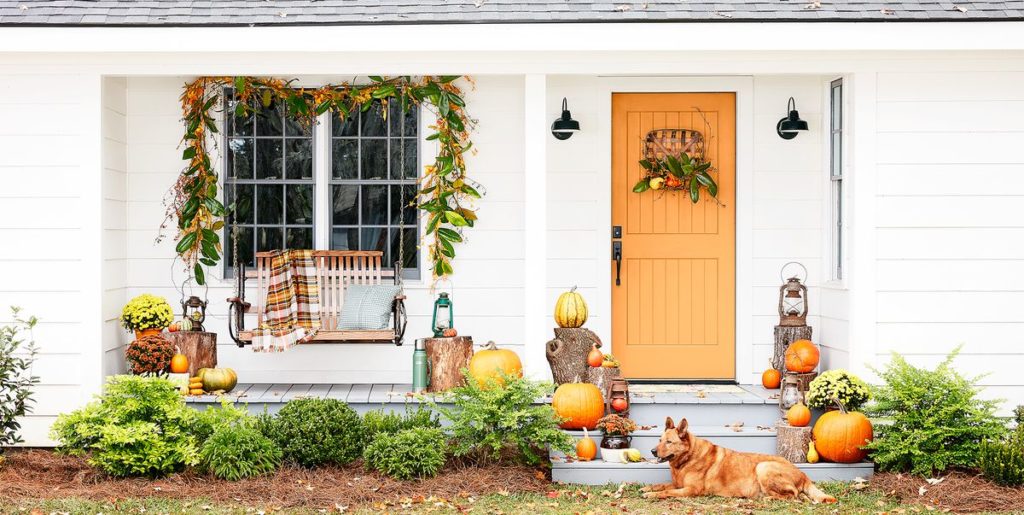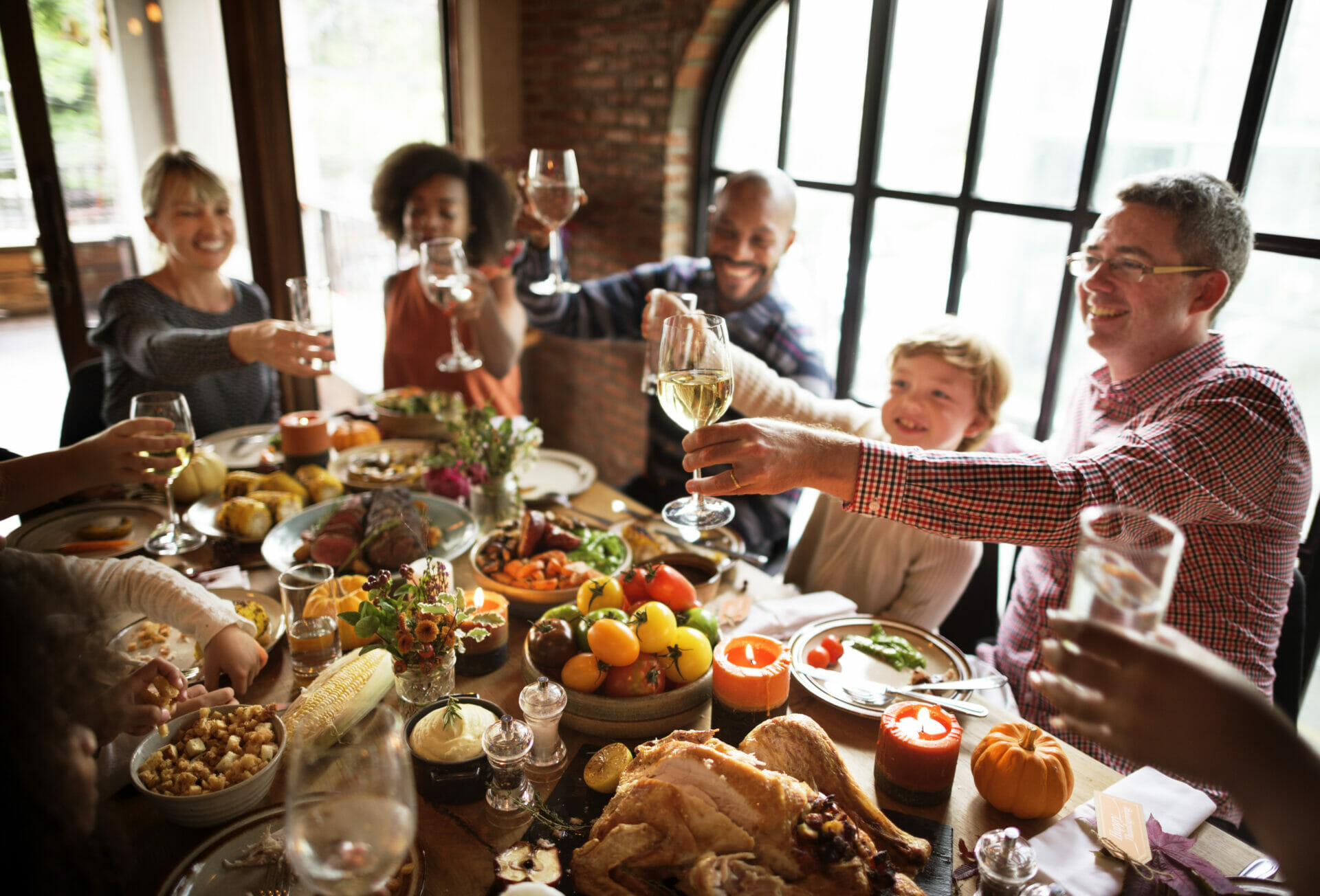Thanksgiving is a time to be thankful for all the blessings that we have in life. But unfortunately, it can also be a holiday that can see some costly insurance claims. From cooking accidents and injuries to house fires and travel safety issues – – below we’ve mapped out some common thanksgiving hazards, and how you can have a safe and protected holiday season this year.
1. Prevent Fires and Other Injuries

According to the National Fire Protection Association (NFPA), Thanksgiving is the peak day for home cooking fires, followed by Christmas Day, the day before Thanksgiving, Easter, and Christmas Eve. In 2018, U.S. fire departments responded to an estimated 1,630 home cooking fires on Thanksgiving, and unattended cooking was by far the leading contributing factor in cooking fires and fire deaths.
If you do have a fire, use a fire extinguisher or fire blanket to put it out – never water.
Thanksgiving Safety Tips to prevent fires and other injuries in the kitchen:
- Stay in the kitchen when you are cooking on the stovetop so you can keep an eye on the food.
- Stay in the home when cooking your turkey and check on it frequently.
- Watching where you set down towels and other flammable items.
- Don’t wear billowy clothing that could come in contact with heat and flames.
- Keeping a fire extinguisher or fire blanket in the kitchen to quickly put out fires.
- Keep children and pets at least three feet away from the hot stove.
- Be cautious around the steam or splash from vegetables, gravy, or coffee as these could cause serious burns.
- Keep knives out of the reach of children.
- Be sure electric cords from an electric knife, coffee maker, plate warmer, or mixer are not dangling off the counter within easy reach of a child or are laying in water prior to plugging them in.
- Keep matches and utility lighters up high in a locked cabinet.
- Never leave children alone in a room with a lit candle.
- Leave a clear 12 inches on every side of the flame.
- Consider fake candles.
- Make sure your smoke alarms are working. Test them by pushing the test button.
- Make sure you have timers set so food doesn’t burn and potentially set off smoke alarms or worse, cause a fire. Keep the timer next to you so you don’t miss it over loud conversations or other noise.
Thanksgiving Safety Tips for Deep frying a turkey:
Each year, more than 1,000 turkey fryer fires ruin Thanksgiving. That’s hardly a surprise considering you’re dropping a raw bird into a vat of hot oil. But the potential explosion from not drying or thawing your turkey sufficiently is a big risks. Turkey fryers can lead to severe burns or other injuries, and property damage, even if you’re extremely careful. Turkey fryers can also start fires if you:
- Use too much oil.
- Knock them over.
- Overheat the oil.
That said, deep-fried turkey is delicious and a staple at many Thanksgiving tables. So if you can’t pass it up, you can avoid a turkey fire by thawing the bird completely, keeping flammables a safe distance away, and never overfilling the fryer. While you’re at it, keep the children far from this Thanksgiving tradition. In fact, clear the area when you’re about to plop the bird in the pot.
- Stay Away from The House – Set up the turkey fryer more than 10 feet away from your home and keep children and pets away. Never leave it unattended.
- Find Flat Ground – The oil must be even and steady at all times to ensure safety. Place the fryer on a flat, level surface and carefully gauge the amount of oil needed.
- Use a Thawed and Dry Turkey – Make sure your Thanksgiving turkey is completely thawed and dry. Extra water will cause the oil to bubble furiously and spill over. If oil spills from the fryer onto the burner, it can cause a fire.
- Monitor the Temp – Use caution when touching the turkey fryer. The lid and handle can become very hot and could cause burns. Also be sure to keep track of the oils temperature as many fryers do not have their own thermostats.
- Be Prepared – Have a fire extinguisher (multipurpose, dry-powder) ready at all times in the event that the oil ignites.
2. Prevent Food Poisoning

When people think about Thanksgiving safety, fire prevention often comes to mind, and rightly so. But, many disregard the risk of food poisoning in the process.
If you’re throwing a Thanksgiving get together at your house, the last thing you want is to give your guests food poisoning. The most likely culprit of this Thanksgiving disaster is probably undercooked turkey, which can easily spread bacteria through much of your Thanksgiving dinner if you’re not careful about cross-contamination.
The best way to prevent this from happening is to:
- Practice proper hygiene and cooking. Wash your hands before and after prepping food. Fruits and vegetables should also undergo a thorough washing. The same goes for all dishes, utensils, and surfaces you’re using.
- Thaw your turkey safely and completely. Turkeys generally take 24 hours per pound to defrost, so buy your bird early. And never leave it on the counter. The safest way is in your refrigerator, but you can also defrost it in a leak-proof bag in a sink full of cold water as long as you change the water every 30 minutes.
- Handle your turkey safely. You need to wash your hands thoroughly before handling raw turkey, and never let any utensil, cutting board, dish, or other surface that’s touched raw turkey come into contact with any other part of your meal, whether it’s cooked or not.
- Cook your defrosted turkey completely. To kill any bacteria in your turkey, make sure that it is cooked to an internal temperature of 165 degrees Fahrenheit. You can check this by putting a cooking thermometer into the thickest part of your turkey’s breast, wing, and thigh.
- Store leftovers properly by storing them in tightly sealed containers. Never let them sit out for too long.
- BONUS TIP: Read food labels. Warning your guests (and avoiding known allergens) can prevent dangerous allergic reactions, so read ingredient lists for common allergens when you’re using new ingredients or cooking for a large group.
3. Protect Your Home From Break-ins

While the holidays are considered the most wonderful time of the year, if your home gets broken into by thieves, then it won’t be such a wonderful time. People tend to be from their homes more during the holidays, and that gives criminals ample opportunity to break in or swipe packages off of porches.
How to protect your home and deter break-ins when you’re out of town:
- Get a security system. This not only deters criminals, but it may earn you a discount on your homeowners insurance.
- Use lights with timers. You can give the impression that you’re home pretty easily with today’s smart technology.
- Keep your travel plans off social media. Consider waiting until you’re back in town to share photos and updates
- Get a safe for small valuables such as jewelry and family heirlooms.
- Pause your mail or have a neighbor or friend collect it and to keep an eye on your home, so any mail doesn’t pile up and tip off burglars.
A Safe Thanksgiving Is a Good One
Thanksgiving might be a time to catch up with family and friends, enjoy delicious food, or simply enjoy the company. But, that doesn’t mean you should be careless. By adopting these 3 Thanksgiving safety tips, you can ensure a fun time for you and your guests while keeping everyone out of harm’s way.

View Comments
+ leave a comment